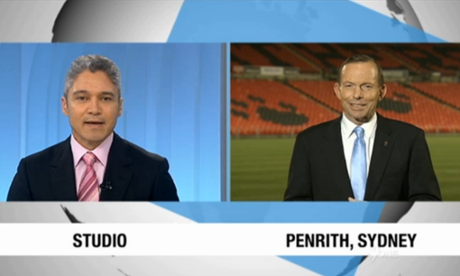
There is that great line from Michel de Montaigne: “It is good to be born in very depraved times; for, compared with others, you gain a reputation for virtue at a small cost.”
The virtue-bar has been brought so low these days that you wonder how even the cheaply virtuous still limbo under it. Hypocrites make laws, vassals enact them, the dumb preach dumbness to the dumber. So in our own “very depraved times”, who are the ones we might trust?
As someone who has spent some time around the theatre, I’ve always been interested in the way people act. I remember noting, for example, sometime back in the mid-90s, a distinct change in the way our politicians performed.
A newly-developed style, which might best be described as laissez faire, became highly influential. Ministers’ public performances more casual, distant, bored. At press conferences a journalist would ask a question and in reply the respondent would affect an almost disdainful air, as if saying: Really? Really? You’re really asking me that?
The trick was to assume an aloof disengagement, the heat deflected by an affectation of cool. Whether it be refugees drowning at sea or the latest terms of trade, the performer remains centred, deadpan, and therefore somehow more powerful than their hot-headed entourage of media puppies.
This style initially became popular on the right side of politics, where the mantra has always been “responsible management”. Any emotion – let alone, God help us, passion – was seen as reckless. But the left’s acting coaches were watching too, and they soon counter-attacked with their own po-faced pressers where all you’d hear was the sound of tough questions hitting a straight bat.
A whole new generation of performer-politicians had arrived: icy-cool, steely-jawed and highly skilled at persuading the public to think their lies were the truth. Simple-speaking, laconic, “authentic”, in control.
It’s funny, isn’t it, for a writer of fiction to be observing something that could equally describe what many of us aim for in our own little theatres of the mind? Emotional restraint. Indigent sentences. A studied casualness. A constructed authenticity. Aren’t those the traits lauded by critics, loved by readers, rewarded with prizes?
Few writers are game enough to openly acknowledge the wily artifice of what we do, and certainly not in a way that would – good lord! – put us on a par with those politicians. But, like them, we do craft a lot of tiny lies to make our big ones seem like the truth.
While Montaigne was finalising his Essais, over the border in Spain a very different kind of writer was dealing with similar questions: how to get through the falseness to real authenticity, integrity, virtue. But in contrast to Montaigne’s pellucid style, Miguel de Cervantes approached it via the more ragged-arsed tradition of oral storytelling.
Don Quixote – that novel of all novels – was built on the most fundamental storytelling principle of all: this might be true, but it’s unlikely; I am probably making it up. Yet, somehow, the crazy deeds of Cervantes’ hero and his lesser characters’ tall tales left the reader with the overarching feeling that this book was also somehow adding up to a deeper truth.
So why, we should ask, don’t we feel the same thing when we watch a press conference? Why do the lies of politicians seem immoral and Cervantes’ virtuous? Audiences flock to writers festivals, hang on our every word, read our opinions on popular newspaper blogs. And true, many authors do have significant things to say and often seem to see things with a clearer, Montaigne-like eye.
But then we take our lanyards off and go home and make up shit. We move, with almost exquisite facility, from masquerader to soothsayer and back. Have we gained our reputation for virtue “at a small cost”?
The counter argument – there’s got to be one – would suggest that those of us who trade more than most in humbuggery have earned this public love and trust over those who should have because we alone continue the noble tradition of Cervantes: spinning lies but saying they’re lies in a way that invites in the truth.
In their desperation to control the narrative, politicians and their acting coaches might have stolen our kitbag of trickery and artifice but they left behind the fundamental principle: storytellers are the liars who admit they are – the rest are just, well, liars.
The Frenchman died before reading the Spaniard. But I think he would have approved. “Every day I hear fools saying things that are not foolish,” wrote Montaigne elsewhere in the Essais. I’m sure he’d heard a good deal of the opposite, too.
Seeing it, knowing it. Calling it. That’s all that matters. My name is Wayne Macauley, and I am a liar. It almost sounds like truth.
• Wayne Macauley is a Melbourne-based writer. His latest novel Demons is published by Text

